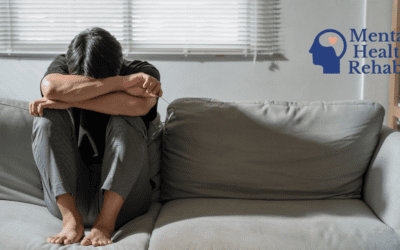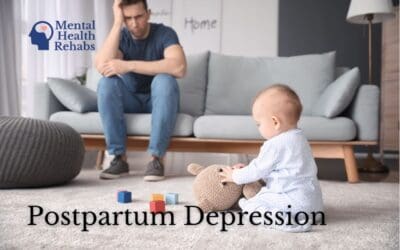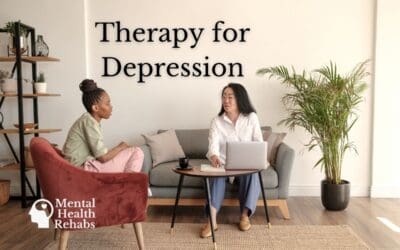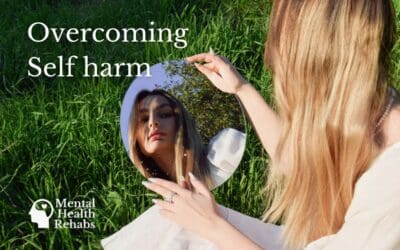Seasonal Affective Disorder.

What Causes Seasonal Depression?
While scientists have not yet pinpointed an exact cause of this condition, the reduction in the amount of daylight during winter months is widely credited.
Some of the most common factors that are believed to contribute to the onset of Seasonal Affective Disorder include:
- Disruptions in circadian rhythm
- Chemical imbalance in the brain
- Vitamin D deficiency
- Increase in melatonin production
Interestingly enough, all of the items listed can be connected to a reduction in sunlight exposure.
Summer Depression is a less common form of SAD that is characterized by depression brought on during the summer months. The rare condition is an anomaly that causes a clear contradiction to the theories of what causes Seasonal Affective Disorder.
Diagnosis
Before receiving professional treatment, a diagnosis by a trained mental health professional will be necessary. This professional will be looking for known signs and symptoms of the condition, how many the patient exhibits, and how often.
Signs & Symptoms of Seasonal Depression
- Feelings of sadness
- Anxiety
- Sugar and carbohydrate cravings
- Weight gain
- Fatigue/lack of energy
- Difficulty concentrating
- Irritability
- Heavy limbs
- Loss of interest
- Insomnia
- Feelings of hopelessness
- Thoughts of self-harm
Treatment for Seasonal Depression
The good news is that Seasonal Depression is treatable! In fact, there are several different ways to help you cope with and to treat this condition. Treatment options can include talk therapy, medication, and alternative therapy. As with most conditions, a combination of therapies often provides the best results.
Let’s talk about each treatment option.
Talk Therapy
Working with a psychologist or mental health counselor one on one has proven to be beneficial for all forms of depression. In therapy, your provider will likely utilize a form of psychotherapy called Cognitive Behavioral Therapy.
Medications
For more moderate to severe cases of SAD, you may need to work with a psychiatrist or another physician to try a medication along with talk therapy. Bupropion (Wellbutrin) is a common medication used to treat seasonal depression. In some cases, other antidepressants and SSRIs maybe be prescribed.
Light Therapy
Light therapy is an alternative therapy that has been proven to be highly effective in threatening SAD. Other alternative therapies for Seasonal Depression include supplements such as St. John’s wort, melatonin, and vitamin D.
Lifestyle Changes
Routine and lifestyle choices can be highly beneficial in managing SAD. This includes maintaining a routine where you:
- Shower daily
- Exercise regularly
- Get 30 minutes of sunlight each day (even just sitting near the window)
- Eat a balanced diet
Related Conditions
Do you have Seasonal Affective Disorder, or is it something else? The following conditions are often confused with or co-occurring with Seasonal Affective Disorder:
- Depression
- Bipolar Disorder
- Generalized Anxiety
- Postpartum Depression
Related Articles
6 Factors You Shouldn’t Ignore When It Comes to Mental Health
It's easy to sideline mental health amidst daily commitments and routines in our fast-paced world. Often, we only recognize its significance when facing burnout or health issues. The gravity of this oversight is evident in the fact that, as of 2021, 9.2 million U.S....
4 Postpartum Depression Treatment Options Parents Should Consider
Women undergo a radical and rapid hormone change in the weeks immediately preceding and following childbirth. These fluctuations can result in the mood disorder known as postpartum depression (PPD), which is estimated to affect around one in five mothers. Unlike “baby...
8 Recommended Types of Therapy for Depression
Depression is a mental health disorder that affects millions of people worldwide. It can significantly impact an individual's daily life, making it difficult to carry out basic tasks, work, and maintain relationships. While medication can help alleviate symptoms,...
6 Tips on How to Stop Self Harm
Self-harm is a serious and often misunderstood problem that affects many people. If you or someone you know is struggling with self-harm, it's important to know that help is available. People who self-harm often experience mental health issues like depression,...
Don’t Struggle Alone.
Get Help Today.
Reaching out for help for yourself or a loved one can be overwhelming and stressful, but it doesn’t have to be. If you are struggling to find the right help, or even know where to get started, please feel free to call our 24/7 helpline.
Begin your mental health journey right now!





